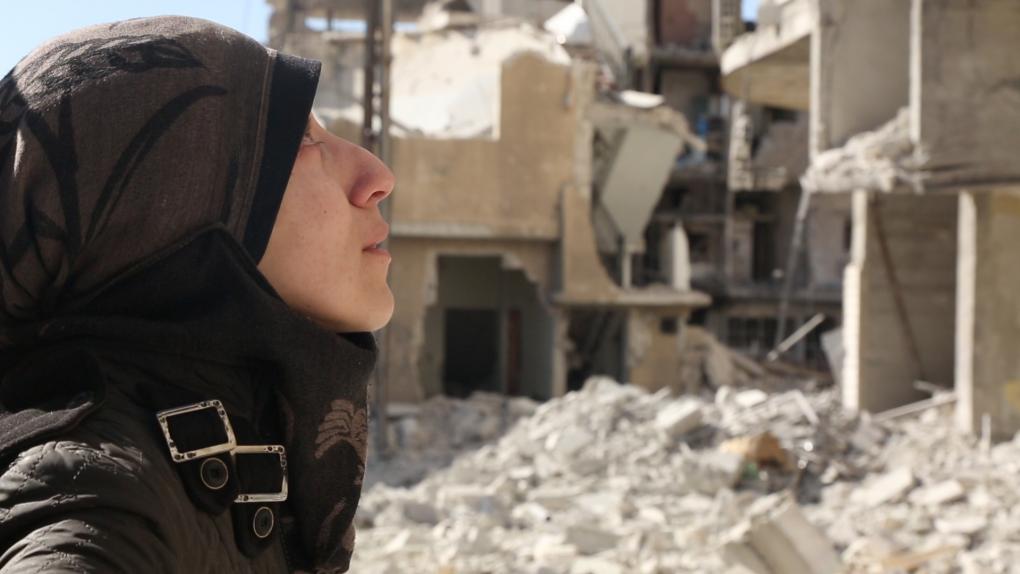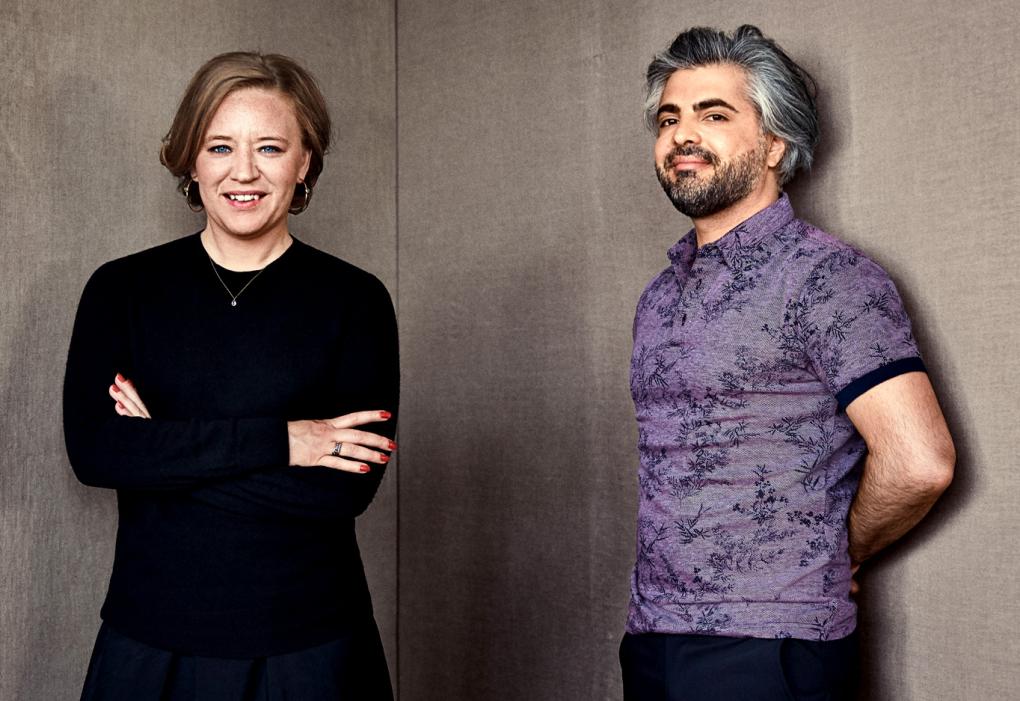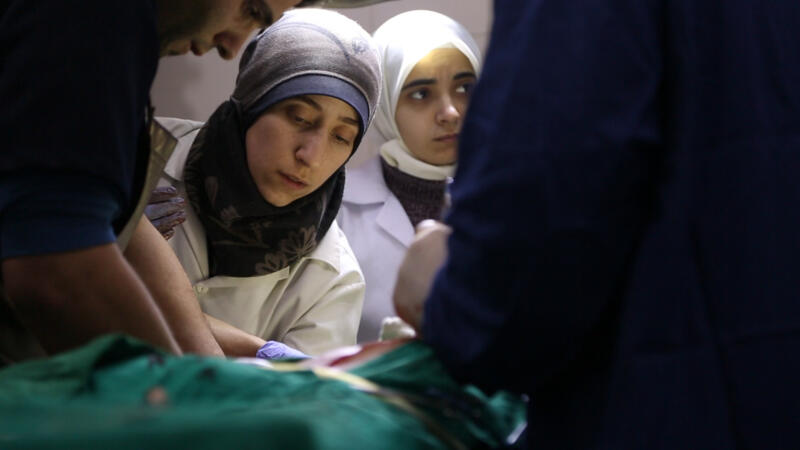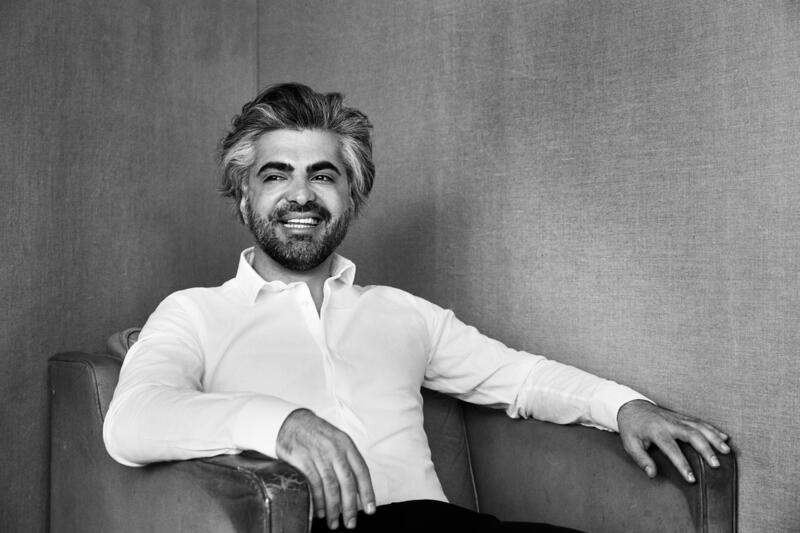
Feras Fayyad grew up surrounded by formidable women: his mother, seven sisters and four aunts.
The women of his family were a huge influence on his life and his development as a filmmaker. He had always been disturbed by Syrian society's view of women as the weaker sex, born to be wives and mothers and inherently inferior to men. "My mother was always making things," he asserts. "I learned from her and my sisters and my aunts. They shaped me into the person I am."
In March 2011, the government of President Bashar al-Assad began a vicious crackdown on the country's nascent pro-democracy movement. Fayyad was arrested, his film about an exiled Syrian poet and the struggle for freedom of expression having put him in the regime's crosshairs. He was imprisoned and tortured for fifteen months.
Fayyad witnessed shocking cruelty and misogyny while in prison. "One of the things that you heard all the time was the torture of women and children," he remembers. "And women would be tortured mostly because they were women. I came out of prison destroyed, angry. As a male growing up in a family of strong women, this was very personal for me. I felt that someday I had to use my voice as a filmmaker to speak out."

Meeting Dr. Amani
Then, in August 2013, the Assad government staged a chemical attack on the opposition stronghold of Al Ghouta, on the outskirts of Damascus. Warheads were dropped at 2:30am, choking people as they slept. One of Fayyad's friends, a filmmaker, was able to capture the scene in the following days as rescue workers fanned out into the streets filled with the dead and barely living. Fayyad was galvanized by the footage of two female doctors, working quickly and decisively. One of them was a young pediatrician, Dr. Amani.
"It was like something out of a Hollywood movie, where you see heroes running between the bodies and trying to save lives," Fayyad recalls. "I could picture my mom, my sisters, the women that had been beaten during my time in prison. All their stories came together in this woman, Dr. Amani, who was not just doing her duty as a doctor; she was challenging the stereotypes and prejudices that Syrian society has about women."
He learned that Dr. Amani worked at the Cave, an underground hospital in Eastern Al Ghouta. The subterranean stories of the Cave were part of a six story hospital construction that had been left unfinished and had stood empty since the start of the Syrian rebellion. When the Assad regime began stepping up its attacks on Al Ghouta in 2012, surgeon Salim Namour had the idea to open the underground portion of the building as a safe place to treat patients. Dr. Amani began working at the Cave soon after it opened and was instrumental in building out the hospital's underground levels.
Fayyad kept up with news about Dr. Amani and the Cave while working on other projects, including 'Last Men in Aleppo', during the next two years. By early 2016, he had begun exploring the possibility of making a film about underground spaces in Syria and was hoping to include the Cave.
Women as heroes, not victims
Dr. Amani began to understand the kind of work Fayyad wanted to do after she was shown 'Last Men in Aleppo.' She and Fayyad discussed his vision for the film and how it was related to his own experience with his family and his imprisonment.
"Feras told me that he saw the women in this story as heroes, not as victims. He wanted to show women in a state of action, saving lives," says Dr. Amani. "He told me about his mother and his sisters and about the torture and abuse of women he witnessed during his imprisonment. He wanted to bring the world's attention to the cruelty of misogyny."
"We talked about the importance of the idea of truth, and how that connected to my job as a doctor. Because I was so close to the victims, I was a witness to war crimes. I believe in the power of media and I wanted the truth to be known."
Her agreement came with one film stipulation, according to Fayyad. "She said, 'I have a responsibility to keep saving lives, so please be careful when you film with me. Be careful not to distract me from my work.'"
Unable to go to Al Ghouta himself because of the ongoing siege, Fayyad turned his attention to putting together a cinematography team to film inside the Cave. His search led him to three gifted collaborators: Damascus-born cinematographers Muhammed Khair Al Shami, Ammar Sulaiman and Mohammad Eyad.
Connecting with Danish Documentary
Fayyad had the team's preliminary footage stored on his cell phone when he began traveling the 2017 festival circuit with 'Last Men in Aleppo.' At the Berlin Film Festival in February, he met producer Kirstine Barfod of Danish Documentary Production, a female-owned company that is one of Denmark's most established documentary outfits, founded in 2007 by producer Sigrid Dyekær and directors Eva Mulvad, Pernille Rose Grønkjær and Mikala Krogh.
"I had been hearing about Kirstine and had seen a film she produced, 'Venus', which I liked very much. I had also heard good things about Sigrid [Dyekjær]," comments Fayyad. "I showed her the footage I had from the Cave when we met in Berlin. The next month Kirstine, Sigrid and I met in Copenhagen and started talking about Al Ghouta."
Barfod and Dyekjær felt Fayyad's project was a natural fit for them. As Barfod notes, "This was a story about a female character battling stereotypes and taking active measures to change her environment. Dr. Amani inspired the women in her team to come and work with her at the Cave. The story connected with us and connected with the company."
Close to the characters
Because of Fayyad's travel schedule, several months passed before they were able to meet again to review the footage Fayyad's team had shot during that time. "The three of us met at Sigrid's house and looked through the material to evaluate. And we were all just amazed. There was no doubt there was a film in this," says Barfod.
Filmed in Eastern Al Ghouta since 2016 and into March 2018, 'The Cave' immerses us in the unfamiliar, disorienting environment of the underground. The characters rarely venture above ground, lest they risk being killed in one of the frequent airstrikes by Russian warplanes. Instead, they spend most of their lives in artificially-lit rooms with their cell phones as their primary connection to the outside world.
By showing the range of daily experience, from the harrowing to the mundane, the audience could connect with the characters as individual beings in all their complexity. "Of course, the bombings and terrible events that happen are powerful and important to capture," comments Fayyad.
"But I also wanted to shine a light on the small, quiet details of each day – things that at first glance may seem unimportant but that, when looked at with more care, are actually the things that make us human. That enable us to survive."
The interview is an abbreviated version of National Geographic's coverage of 'The Cave' at the Toronto Film Festival. Published on dfi.dk 4 September 2019, revised 11 November 2019.


